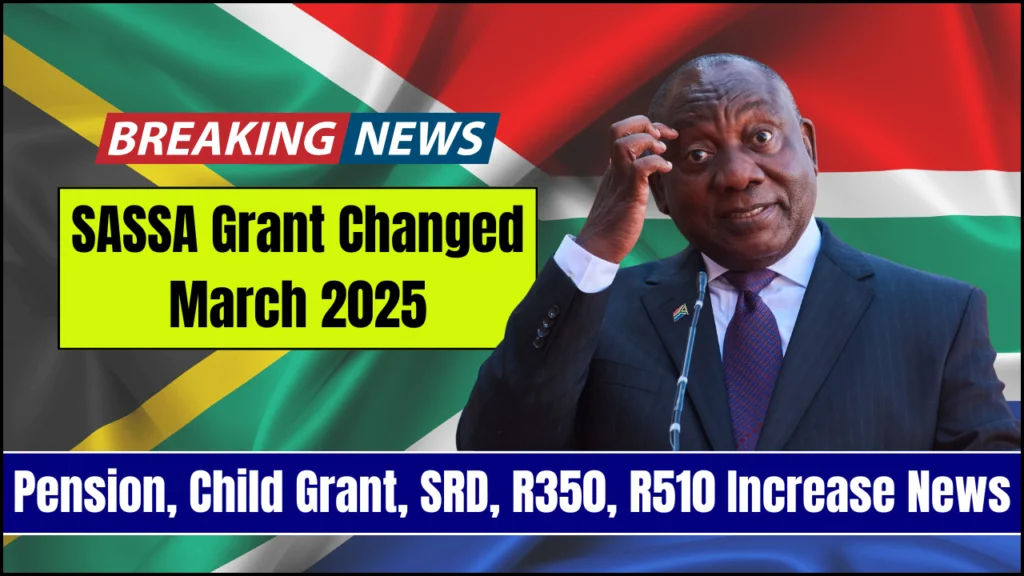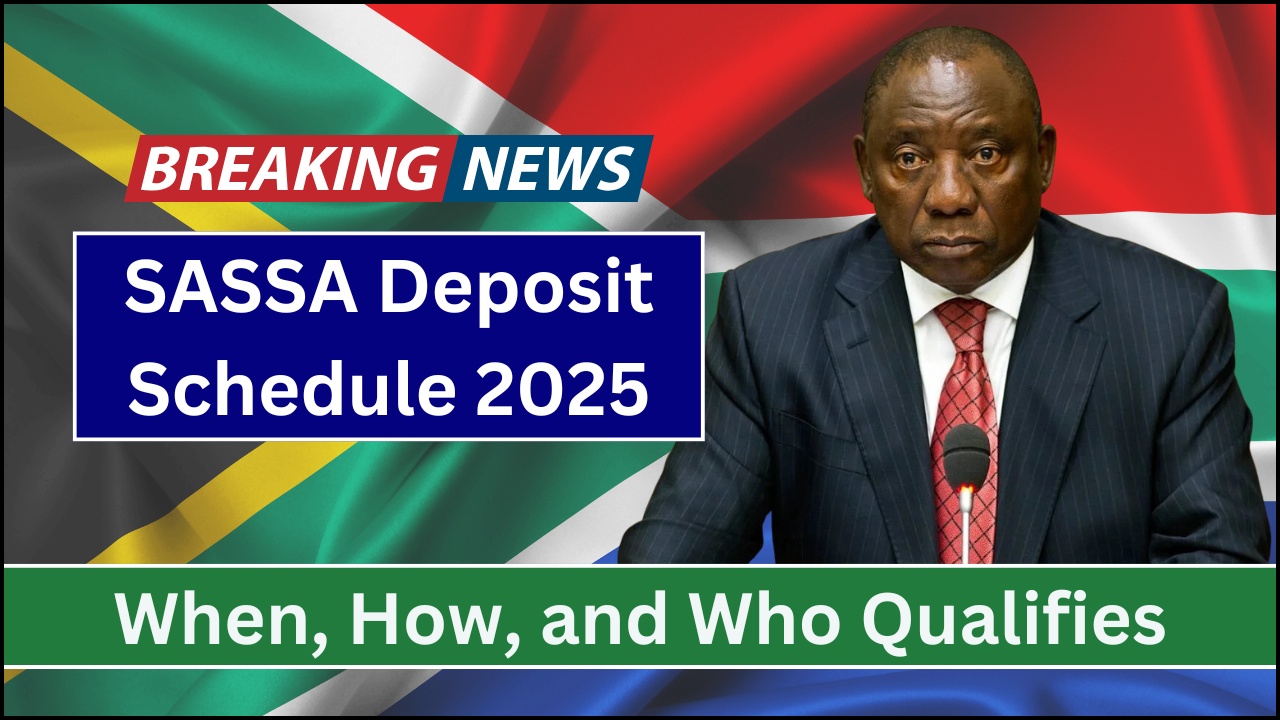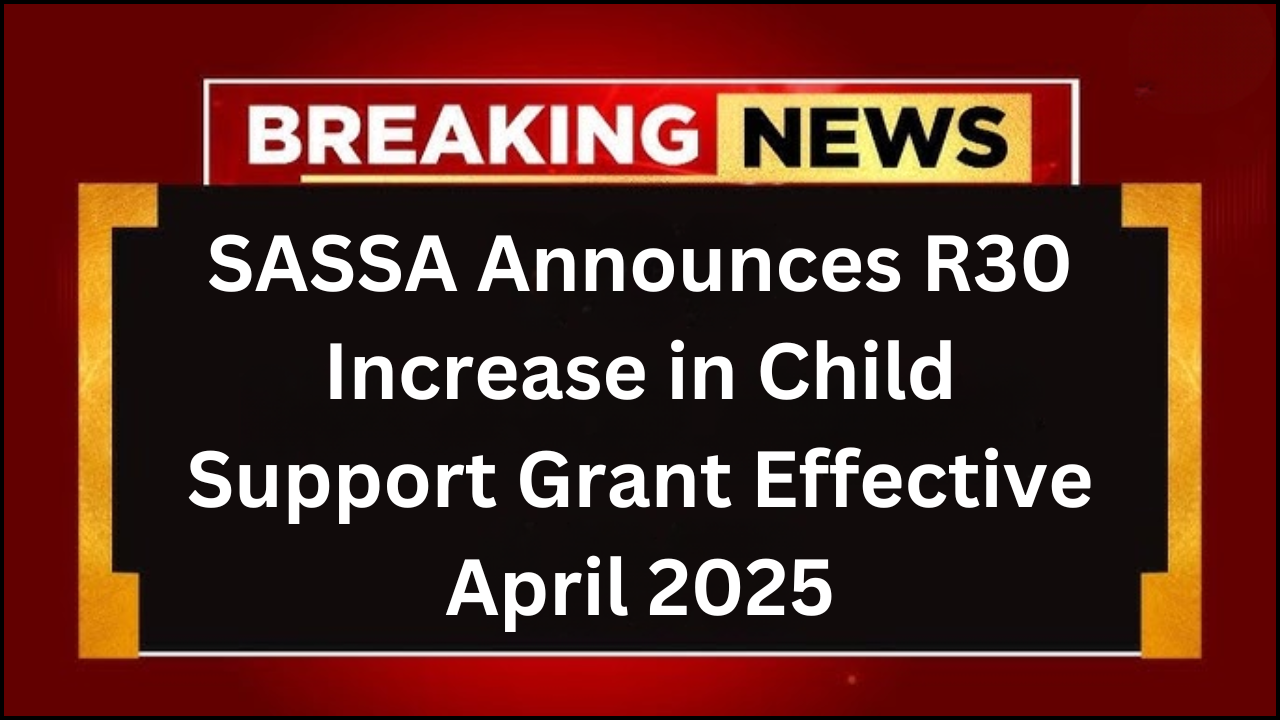
South Africa’s Social Security Agency (SASSA) has announced important changes to various grants starting March 2025. These updates will affect millions of South Africans who depend on these grants for their daily needs. This article breaks down all the changes in simple terms to help you understand what to expect in your upcoming payments.
Why Are These Changes Happening?
The South African economy faces ongoing challenges with the cost of living continuing to rise despite a slight drop in inflation from 5.1% to 4.6%. For the approximately 18 million citizens receiving SASSA grants, these economic pressures make it difficult to cover basic expenses.
According to recent statistics, about 63% of South Africans live below the poverty line. Many households, especially seniors, are forced to adjust their living standards to cope with higher expenses. The government recognizes these difficulties and has decided to increase various grants to provide additional support.
Key Changes to SASSA Grants in March 2025
| Grant Type | Previous Amount | March 2025 Increase | New Total Amount |
|---|---|---|---|
| Old Age Grant | R2100 | R10 increase | R2110 |
| War Veteran Grant | R2200 | R10 increase | R2210 |
| Disability Grant | R2180 | R10 increase | R2190 |
| Care Dependency Grant | R2180 | R10 increase | R2190 |
| Foster Child Care | R1880 | No March increase | R1880 |
| Child Support Grant | R530 + R250 top-up | No March increase | R780 |
| Social Relief of Distress (SRD) | R350 | 5% increase (R20) | R370 |
Understanding SASSA R500 Grants in 2025, Simplified Guide to Payments and Eligibility
South Africa’s R510 Child Support Grant in 2025, Check Deatils From Application to Payment
SASSA Gold Cards to Remain Valid Until March 2025 – Transition to Black Cards Underway
SASSA R1,250 Foster Child Grant , March 2025 Payment Status and Eligibility Details
SASSA R700 Grants in South Africa 2025, How to Apply and Avoid Scams
Old Age Grant Updates
The Old Age Grant, which serves as retirement support for elderly South Africans, will see another modest increase this March. After already receiving a R90 increase in April 2025, pensioners will now get an additional R10 per month, bringing the total to R2110.
This grant is particularly important because many seniors rely on it as their main source of income. While the R10 increase might seem small, it represents the government’s ongoing commitment to gradually improving support for the elderly in line with economic conditions.
War Veteran Grant Changes
South Africans who served in the military during specific wars will see their War Veteran Grant increase from R2200 to R2210 in March. This comes after a previous R90 increase in April 2025.
Though the number of recipients for this grant continues to decrease as veterans age, SASSA maintains its commitment to supporting these individuals who served their country.
Disability Grant Improvements
People living with disabilities who qualify for the Disability Grant will receive R2190 starting in March 2025, up from R2180. This represents an R10 increase following the earlier R90 boost in April 2025.
The grant aims to provide financial assistance to people whose disabilities prevent them from entering the workforce and earning an income. While advocates continue to push for larger increases, these incremental adjustments help recipients manage rising costs.
Care Dependency Grant
The Care Dependency Grant, which supports caregivers of children with severe disabilities requiring permanent care, will also increase by R10 in March. The new total amount will be R2190, up from R2180.
This grant is crucial for families caring for children with special needs, as it helps cover specialized care costs, medications, and adaptive equipment that might otherwise be unaffordable.
Child Support Grants
While the Child Support Grant won’t see a March increase, it’s worth noting that it already received significant adjustments earlier in the year. The base amount of R530 plus the additional top-up of R250 brings the total to R780 per eligible child.
For many households with multiple children, these grants represent a vital safety net that helps ensure children’s basic needs are met despite economic challenges.
Social Relief of Distress (SRD) Grant Extension and Increase
Perhaps the most significant news concerns the SRD grant, commonly known as the R350 grant. Initially introduced as a temporary measure during the COVID-19 pandemic, the government has decided to extend this grant until next year due to ongoing economic difficulties.
The SRD grant will increase by approximately 5%, from R350 to R370. While this R20 increase might seem modest, it represents meaningful support for unemployed South Africans who rely on this grant for necessities.
What These Changes Mean for Recipients
For many grant recipients, these increases represent a recognition of the ongoing financial challenges they face. While the amounts may not fully offset rising costs, they do provide some additional relief.
A typical pensioner receiving the Old Age Grant will now have an extra R10 per month, which could help cover basic items like bread or transportation. For SRD recipients, the R20 increase might mean being able to afford additional food items or contribute more toward household expenses.
How to Access Your Grant
SASSA grants are typically paid through direct deposit into recipients’ bank accounts or SASSA cards. Payment dates remain unchanged, with different grants being paid on specific days of the month.
Recipients should ensure their contact information and banking details are up to date with SASSA to avoid payment delays. For those with questions about their specific grant amount or eligibility, SASSA’s local offices or call center can provide personalized assistance.
Looking Ahead: Future SASSA Plans
The South African government continues to evaluate the effectiveness of these social grants in addressing poverty. While these March increases are modest, they form part of a broader strategy to gradually improve social support.
SASSA officials have indicated that they’re monitoring inflation rates and cost of living indicators to determine if further adjustments will be necessary later in the year. The extension of the SRD grant also signals the government’s recognition that economic recovery remains uneven, with many citizens still struggling to find employment.





